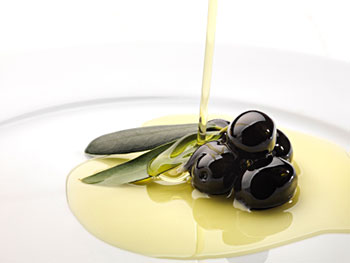It's easy to get answers about health and nutrition! Just send your question by email to [email protected] and Dr. Harlan will respond to selected questions of general interest. Answers will be posted in the Ask Dr. Gourmet newsletter (sign up now!) and archived in the Ask Dr. Gourmet section of the website.
Please note that the Ask Dr. Gourmet feature is restricted to questions regarding food and nutrition. Due to the many questions we receive, not all questions may be answered. For more specific questions about your individual health, please contact your doctor. About Timothy S. Harlan, MD, FACP, CCMS | Terms of Use | Privacy Policy
Ask Dr. Gourmet
What oils should I use in the "Heart Attack Proof" Diet recipes?
I have been reading Dr Esselstyn's diet book and am wondering which is the best oil to use in cooking to make the food more palatable.
Dr. Gourmet Says...

It would probably be best for you to stop reading Dr. Esselstyn.
While he has some interesting data, most of the research he has performed is deeply flawed and really isn't research in the strictest sense. It is anecdote or simply a collection of unrelated experiences (as my wife likes to say, "The plural of anecdote is not data."). He has had some success, it appears, but quality science is based on performing randomized, controlled trials where a specific treatment is compared to another treatment.
Unfortunately, this is not what he did, and while interesting, his results are simply not valid for that reason.
We know that people who have or are at risk of heart disease that change their diet improve and reduce their risk of further health problems. In no way has Dr. Esselstyn proven that his diet is better than the standards of care that have been studied extensively.
There is a lot of psuedoscience in the world today and pretty much anyone can make any claim they wish. It's a shame that smart people are misdirected.
Oils and fats are fine for you and the research is very clear on that. The quality of the oils and fats are what is best for you to consider, as well as using those oils and fats in smart ways. Avoiding fried food, especially those that are deep fried, is a good place to start. Nor should you purchase or consume processed foods or any that contain hydrogenated vegetable oils.
Cooking for yourself is fantastic and the optimum oil for cooking is virgin olive oil. It is less expensive and high in unsaturated fats. For Asian dishes, using sesame oil is a good choice too, and it's full of flavor. Extra virgin olive oil is the choice for making salads and dressings. There is no reason to spend extra money to use it for cooking, since the flavor will be lost, but the fruitiness will come through in dressings and finishing sauces.
The same holds true for butter. Sparing amounts at the end of a recipe can enhance flavor and texture without adding many calories.
Keep in mind that all fats and oils are calorie dense. Each teaspoon contains about 50 calories (a loose rule of thumb), so you do want to measure and not use any more than necessary.
Thanks for writing,
Timothy S. Harlan, MD, FACP, CCMS
Dr. Gourmet
